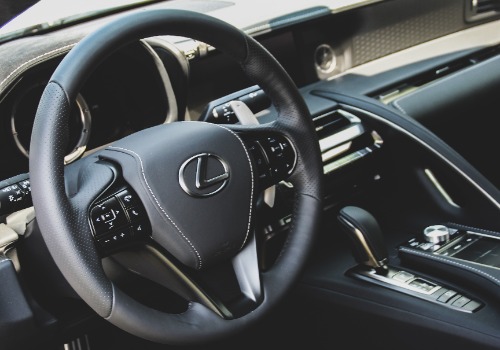The COVID-19 outbreak has had countless ramifications on businesses and our society as a whole. Experts predict that, while most of the country is ordered to stay at home, there will be a rise in pretty crime. There are many reasons for this: boredom, opportunity and lack of police presence as the authorities are focussed on protecting the country from coronavirus and maintaining public order.
Security analyst Robert Emerson says: “Crime tends to survive and prosper in a crisis.” So it’s important for all business owners, managers and employees to be vigilant and take necessary steps to mitigate against crime.
If you are in charge of a fleet of vehicles, there’s no better time to improve your security in order to protect against theft or criminal damage such as vandalism.
Theft is not uncommon
BBC Radio 5 Live research shows a van is broken into every 23 minutes – and this number is likely to increase in our current climate.
From organised crime to opportunist break-ins, it’s important to secure your vehicle. Never leave your keys in the vehicle, even if you’re only stepping out for a short amount of time and not planning on going very far. Never leave tools or valuable equipment on display (always putting away or taking the Sat Nav with you and never keep valuable documents such as logbooks in the vehicle), or leave the van unattended with large amounts of expensive equipment inside. Your drivers should be aware of small steps they can take to reduce the chance of theft or damage, such as parking in a well-lit area that is not isolated – and is preferably covered by CCTV. Use visual deterrents such as a steering wheel or handbrake lock to mitigate the risk of opportunity theft.
Much of this is common sense – but it’s important to ensure your drivers know basic measures they need to take to help you prevent theft or damage.
The benefits of installing CCTV
The benefits are obvious: CCTV will deter thieves and petty criminals from breaking into and potentially stealing your fleet vehicles. If a theft or damage does occur, the police will be able to use the CCTV footage to more easily identify the parties involved too. GPS tracking may also be useful, helping to detect and recover stolen property quickly.
You may also wish to install CCTV in your garage or locked car park. Like with CCTV systems installed in your vehicles, it’s important to display signage letting members of the public know that the area and your vehicles are monitored when left unattended. You should also display that no equipment or tools are left in your vehicle overnight (which should be the case).
Drivers are also thought to drive more carefully and stay safer when driving a vehicle with CCTV. This can help reduce road accidents, and thus positively impact your claims history.
You must let your drivers know if you have installed, or are planning to install, CCTV as they must consent to being recorded (you could include this as part of employment contracts). CCTV or dashcam footage counts as personal data under the GDPR so you must be compliant. You must have a policy in place that explains why you are collecting this data, and why the processing is necessary. Footage should only be used for the purpose it was originally intended, and you could face a fine for improper use. Any recorded material should be stored securely, only accessed by authorised individuals and safely destroyed once is it no longer necessary for the footage to be kept.
Insurance considerations
Inform your insurer if you install a CCTV system in any of your fleet vehicles. Installing CCTV is a modification, and can impact your insurance.
In many cases, installing a CCTV system could bring your insurance premium down. This is because insurers will recognize you have assessed potential for risk and done all you can to mitigate this.
Review your Fleet Insurance
Fleet Insurance is one insurance policy that protects one or more vehicles, saving businesses the complexity of managing several policies.
Just like all vehicles, you are legally required to have third party insurance but you should also make sure you have comprehensive cover which will protect you against theft, fire and other damage.
The claims process will also be made simpler if you arrange Fleet Insurance through an insurance broker. Your broker will handle claims on your behalf. Simply let them know the details and they’ll try to settle the claim with your insurer. Navigating the world of insurance claims can seem impossible for a novice – so sit back and let the experts do the hard work for you.
For all you need to know about fleet insurance, download our whitepaper!



